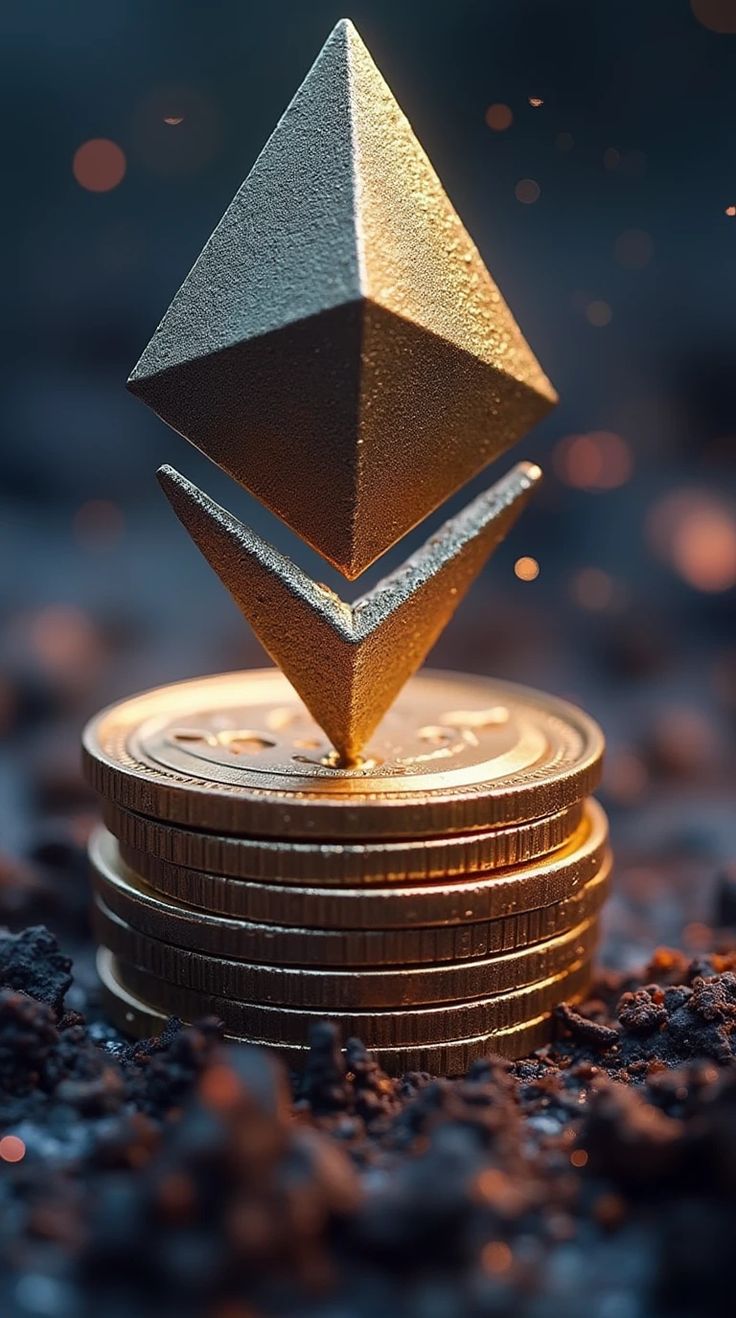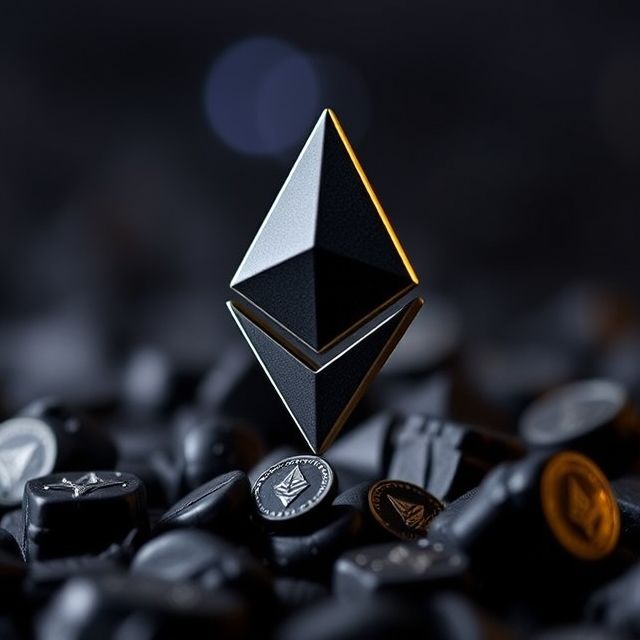Ethereum Tokens: A Comprehensive Guide to ERC Standards and Their Use Cases
Introduction
Ethereum has truly revolutionized the blockchain industry by introducing smart contracts, which have enabled the creation of decentralized applications (dApps) and various types of tokens. Unlike Bitcoin, which primarily functions as a digital currency, Ethereum provides a framework for developers to create and manage their own digital assets. Therefore, these assets, known as Ethereum tokens, follow different token standards, each serving specific use cases within the Ethereum ecosystem.
This guide will explore Ethereum tokens in detail, covering the different ERC standards, their functionalities, and their impact on decentralized finance (DeFi), gaming, non-fungible tokens (NFTs), and beyond. As a result, by the end of this article, you will have a clear understanding of Ethereum tokens and their significance.
What Are Ethereum Tokens?
Ethereum tokens are digital assets that operate on the Ethereum blockchain while leveraging the network’s smart contract capabilities. Consequently, these tokens can represent anything from cryptocurrencies to real-world assets and are widely used in DeFi, NFTs, governance, and more.
Unlike Ethereum’s native cryptocurrency, Ether (ETH), Ethereum tokens rely on pre-defined smart contract standards that dictate how they behave within the ecosystem. Therefore, the most well-known Ethereum token standards include ERC-20, ERC-721, and ERC-1155, among others.
Popular Ethereum Token Standards
Ethereum tokens adhere to specific technical standards so that interoperability and security within the Ethereum ecosystem remain consistent. Below are some of the most widely used standards:
1. ERC-20: The Standard for Fungible Tokens
ERC-20 is undoubtedly the most commonly used Ethereum token standard. It defines a set of rules that fungible tokens must follow, ensuring consistency across the Ethereum network.
Key Features of ERC-20 Tokens:
- Fungibility: Each token is identical in value and function.
- Transferability: Tokens can be sent and received easily.
- Fixed Supply: Many ERC-20 tokens have a pre-determined supply.
- Interoperability: ERC-20 tokens can interact seamlessly with wallets and exchanges.
Use Cases of ERC-20 Tokens:
- Cryptocurrencies: Many popular cryptocurrencies, such as USDT (Tether), LINK (Chainlink), and UNI (Uniswap), are ERC-20 tokens.
- DeFi Applications: ERC-20 tokens play a crucial role in lending, borrowing, and staking platforms.
- Initial Coin Offerings (ICOs): Many blockchain projects use ERC-20 tokens for fundraising.
2. ERC-721: The Foundation of NFTs
ERC-721 is the Ethereum standard for non-fungible tokens (NFTs), which are unique and indivisible digital assets. Unlike ERC-20 tokens, ERC-721 tokens have distinct characteristics and cannot be exchanged on a one-to-one basis. Therefore, they have become the foundation of digital ownership and collectibles.
Key Features of ERC-721 Tokens:
- Non-fungibility: Each token has unique metadata and attributes.
- Ownership Tracking: Securely recorded on the Ethereum blockchain.
- Scarcity: Often limited in supply, increasing their value.
Use Cases of ERC-721 Tokens:
- Digital Art and Collectibles: NFTs such as CryptoPunks and Bored Ape Yacht Club (BAYC) have gained immense popularity.
- Gaming: Games like Axie Infinity use ERC-721 tokens for in-game assets.
- Virtual Real Estate: Platforms like Decentraland and The Sandbox enable users to own virtual land.

3. ERC-1155: The Multi-Token Standard
ERC-1155 improves upon both ERC-20 and ERC-721 by allowing a single smart contract to manage multiple token types, including fungible, non-fungible, and semi-fungible tokens. As a result, this standard offers greater flexibility and efficiency.
Key Features of ERC-1155 Tokens:
- Multi-asset support: A single contract can handle different token types.
- Batch transactions: Reduces transaction costs thus improves efficiency.
- Enhanced flexibility: Supports both NFTs and fungible tokens.
Use Cases of ERC-1155 Tokens:
- Gaming: Enables efficient management of in-game assets.
- NFT Marketplaces: Reduces gas fees by batch processing transactions.
- Loyalty Programs: Companies can issue a mix of redeemable tokens thus collectibles.
The Role of Ethereum Tokens in DeFi
Ethereum tokens have played a significant role in the DeFi revolution. As a result, they facilitate decentralized exchanges, lending, staking, and yield farming. Some notable examples include:
- Stablecoins (USDT, DAI, USDC): Used to minimize volatility.
- Governance Tokens (UNI, COMP, AAVE): Allow holders to vote on protocol upgrades.
- Liquidity Provider (LP) Tokens: Reward users for providing liquidity to decentralized exchanges.
Ethereum Tokens in Gaming and the Metaverse
Blockchain gaming has thrived due to Ethereum’s token standards. Consequently, players can buy, sell, and trade digital assets across multiple platforms. Some key gaming-related tokens include:
- AXS (Axie Infinity): A governance token used in the Axie ecosystem.
- MANA (Decentraland): Powers transactions within the Decentraland virtual world.
- SAND (The Sandbox): Used for purchasing virtual land and assets.
Security and Challenges of Ethereum Tokens
Despite their advantages, Ethereum tokens also face challenges such as:
- Scalability Issues: Ethereum gas fees can be high during network congestion.
- Smart Contract Vulnerabilities: Bugs in smart contracts can lead to exploits.
- Regulatory Concerns: Governments are still formulating regulations around Ethereum-based assets.
Conclusion
ETH tokens have transformed the blockchain landscape, enabling diverse applications across finance, gaming, and digital ownership. Since Ethereum continues to evolve with upgrades like Ethereum 2.0, the efficiency and scalability of these tokens are expected to improve. Whether you’re an investor, developer, or enthusiast, understanding Ethereum tokens is crucial to navigating the ever-expanding blockchain ecosystem.
Call to Action
Are you interested in investing or developing Ethereum-based projects? Therefore, stay updated with the latest trends in blockchain technology and Ethereum tokens by subscribing to our newsletter today!


